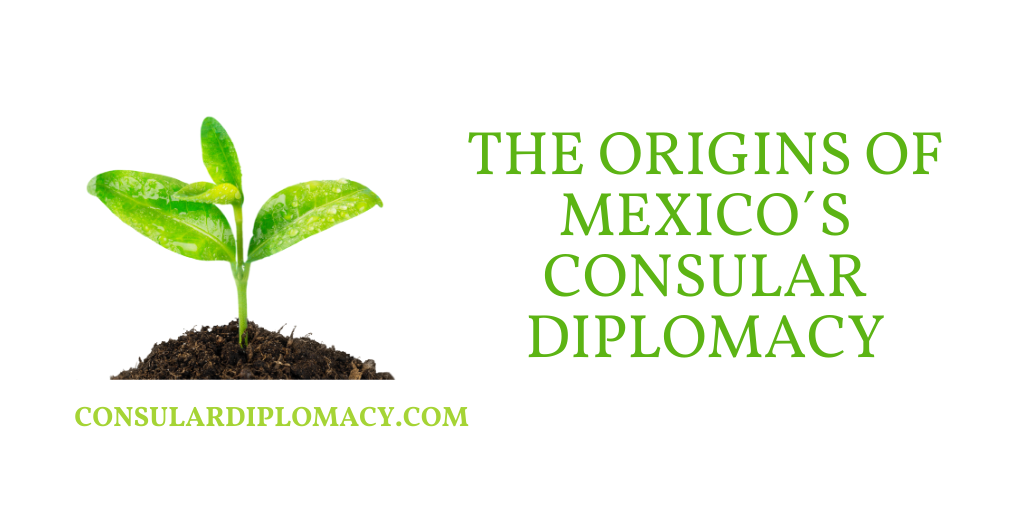 In the last couple of days, I have been reading the spectacular book Antología Protección Consular a Mexicanos en los Estados Unidos 1849-1900, written by Ángela Moyano Pahissa. After the author reviewed what I think must have been thousands of official documents and correspondence written by consuls of Mexico, the Mexican delegation in Washington, and the Ministry of Foreign Affairs, she divided the book into five chapters that deal with specific problems:
In each, Moyano Pahissa included a selection of official documents that reflect the ideas, challenges, and solutions regarding these specific problems that resulted from the Mexico - U.S. War of 1846-1848 and the loss of half of its territory. It is incredible to read that some of them have not changed since then. After reading the book, I now better understand the colossal influence that the annexation to the U.S. of the former Mexican territory had on the Mexicans living in those lands and the development of Mexico’s Consular Diplomacy. From having to ratify their land ownership through a complicated and unfair process, to the need to decide in a year the nationality they wanted to have, Mexicans suffered greatly in the United States after 1848. Besides, there was a direct attack not only against their culture but themselves. “Some historians state that in the decade from 1850 to 1860, Anglo-Americans lynched between three to four thousand Mexicans of a total population of ten thousand.”[i] The systematic loss of property rights, in violation of Article VIII of the Guadalupe Hidalgo Treaty, had significant consequences for Mexicans. Even though property requirements to be able to vote were almost eliminated by then, payment of taxes was still a common requirement to vote, thus limiting their possibility to participate in politics and influence policies. Therefore, Mexico’s government had to enhance the defense of its nationals’ rights north of the border, including the establishment of consular offices in places that before was its own country. Back then, Consuls of Mexico had to respond to information requests by the President’s office about high profile cases reported in the press, when they involved Mexicans, either as victims or as perpetrators. They also presented complaints to U.S. authorities for the delay in court cases, the imposition of high cash bail amounts, or extended detention periods. Mexican consular agents also had to be in constant communications with local and state authorities and the Mexican community, creating cooperation networks. Border consulates had additional challenges like smuggling and attacks on Mexican communities by outlaws, and tribes. If all this sounds similar to what Maaike Okano-Heijmans, a scholar of the Clingendael Institute, described as Consular Diplomacy in “Change in Consular Assistance and the Emergence of Consular Diplomacy,” is because it is! The loss of property rights, the problem of questionable citizenship, the attack on Mexican culture and people, combined with widespread discrimination that Mexicans faced after 1848 in the lost territories, catapulted the government of Mexico to develop an incipient Consular Diplomacy, way before it was the norm across the world.[i] Some of the characteristics of today´s Mexican Consular Diplomacy developed during this period, such as:
[i] Moyano, Pahissa, Ángela, Antología Protección Consular a Mexicanos en los Estados Unidos 1849-1900, México, 1989, p. 113. [i] Heijmans, Maaike and Melissen, Jan in Foreign Ministries and the Rising Challenge of Consular Affairs: Cinderella in the Limelight, Netherlands Institute of International Relations Clingendael, June 7, 2006, p. 4. DISCLAIMER: All views expressed on this blog are that of the author and do not represent the opinions of any other authority, agency, organization, employer, or company.
0 Comments
“… the 2020 coronavirus crisis has made assistance to nationals in en masse crises the most visible 21st century function of ministries of foreign affairs (MFAs).”[i] If people have questioned the existence of Consular Diplomacy, the pandemic caused by COVID-19 has been a wakeup call. Almost all countries across the globe faced the challenge of bringing home citizens that were stuck overseas as most of the world closed its border for traveling. Because of its staggering size, even the wealthiest countries were not prepared for the scale of the consular assistance demanded as a result of the pandemic. Consular officials around the world have to negotiate not only with local and central authorities but also airlines, tour operators, and sometimes even individual hotels or Airbnb hosts to assist their citizens. All these while receiving an unprecedented demand for help, via telephone, but more often, social media from abroad and at home. There is a shared understanding that the most developed plans to provide consular assistance in a crisis fell short as the COVID-19 pandemic presented embassies, consular offices, and foreign ministries with enormous demand from all across the world, almost at the exact time. At this trying times, consular officials need to be recognized for dealing, the best they could, with this crisis of global dimensions. Here you can find some of the responses to the need to repatriate hundreds of thousands, if not millions of citizens that were stranded overseas as country after country closed their borders to quell the pandemic. The Lowly Institute of Australia stated that “In April 2020, the scale of the consular crisis has become crystal clear. Of Australia’s one million-strong diaspora and several hundred thousand short-term trip-makers, 200,000 have returned home in the past three weeks. The United Kingdom reported spending £75 million to repatriate 300,000 of its citizens abroad. The United States has repatriated 43,000 Americans from 78 countries since late January. The list goes on.”[ii] In Canada, the “Foreign Affairs Minister François-Philippe Champagne has taken some unconventional means to bring home thousands of Canadians stranded abroad by the COVID-19 pandemic, from securing landing rights for planes over text message to directly negotiating flight fares with airline CEOs.”[iii] So, by the end of May, the Canadian government was able to repatriate close to 40,000 people from 100 countries on 356 flights.[iv] Even private companies, in this case, Sunwing Airlines, were assisting in the repatriation efforts, by giving away without charge empty seats in their planes to nearly 5,000 that were not customers of the airline. In total, the airline stated that it brought back over 60,000 Canadians stranded abroad. Besides working on bringing back home its citizens, Global Affairs Canada convened the Ministerial Coordination Group on COVID-19, formed by 15 countries, which announced a Declaration on Maintaining Essential Global Links amid the pandemic on April 17, 2020. The U.S. State Department stated that by April 1, 2020, “has helped more than 30,000 Americans stranded in 60-plus countries board 375 U.S.-bond flights.[v] However, some of its citizens complained about its slow reaction compared with other countries such as Germany. In response, a State Department spokesperson commented that “the State has never undertaken an evacuation effort of such geographic breadth, scale, and complexity in its 230-year history.”[vi] Regardless of the complaints, on June 12, 2020, the U.S. Senate unanimously approved a resolution “commending career professionals at the Department of State for their extensive efforts to repatriate United States citizens and legal permanent residents during the COVID-19 pandemic”.[vii] The Ministry of Foreign Affairs of Mexico has also worked on the repatriation of nationals overseas. It publishes on social media a daily update on the number of Mexicans safely returned home and nearly weekly statistics of Mexicans who unfortunately had COVID-19, including the almost 2,173 who died abroad. By July 29, embassies and consulates of Mexico around the world assisted in the repatriation of nearly 16,500 Mexicans stranded abroad. In an unprecedented consular action, on July 11, 2020, a Mexican Air force airplane repatriated 245 urns with the remains of Mexicans that died from COVID-19 in the area of responsibility of the Consulate General of Mexico in New York City. By sheer volume, 1.3 million persons repatriated via commercial flights since the beginning of the pandemic, the Foreign and Commonwealth Office of the United Kingdom had one of the biggest challenges. Meanwhile, the European Union estimates it helped with the repatriation of 590,000 of its citizens abroad. Every country across the globe had to assist their nationals, and sometimes citizens of other countries, during the pandemic. We just have to recognize their commitment and public service in these challenging times. Thank you all consular officials around the world! Before closing, I want to bring to your attention a fascinating research paper by a great Consular Diplomacy scholar, Jan Melissen. In it, he describes that a more significant challenge for ministries of foreign affairs than provide consular assistance to their national abroad is how to communicate with them to change behaviors successfully. The paper has two versions: the short one posted in the Devpolicyblog, and the more scholarly work in Asia and the Pacific Policy Studies Journal. [i] Melissen, Jan, “Nationals in crisis and diplomacy´s domestic communication challenge” in DevpolicyBlog, April 27, 2020. [ii] Oliver, Alex, “Post-COVID-19 diplomacies will be refinanced”, in the World after COVID-19 by the Lowly Institute [iii] Carbert, Michele “Minister takes unconventional diplomatic steps to repatriate stranded Canadians amid COVID-19” in the Globe and Mail, April 14, 2020. [iv] Harris, Kathleen, “Government operation to bring home pandemic-stranded Canadians almost complete, says MP” in CBC, May 22, 2020. [v] Williams, Abigail and Li, David K. “State Department warns Americans stranded overseas that time is running out” in NBC News, April 1st, 2020. [vi] Cachero, Paulina, “Americans stranded abroad complain that other countries are evacuating their citizens way faster than the US government is” in The Insider, April 3, 2020. [vii] S.Res.567 - A resolution commending career professionals at the Department of State for their extensive efforts to repatriate United States citizens and legal permanent residents during the COVID-19 pandemic, United States Senate, 116th Congress, June 11, 2020. DISCLAIMER: All views expressed on this blog are that of the author and do not represent the opinions of any other authority, agency, organization, employer or company. |
Rodrigo Márquez LartigueDiplomat interested in the development of Consular and Public Diplomacies. Archives
May 2024
Categories
All
|

